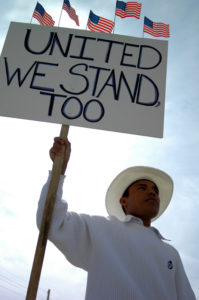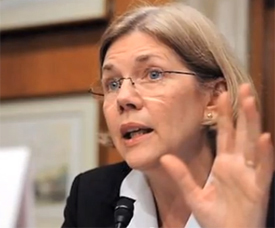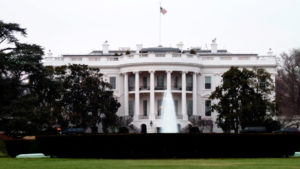40 Years Ago Today, We Changed the World (part 2—Outside the Armories)
Part 2 of a series of reminiscences of the April 30/May 1, 1977 occupation at the Seabrook, NH nuclear power plant construction site, and its aftermath. If you missed Part 1, read it here.
The Nuclear Controversy Makes the News
In 1977, the vast majority of Americans had never looked into the arcane technical issues around nuclear power. The government told us this technology was safe, and most of us believed them. Three years earlier, I had taken on a research project for a college class on the pros and cons of nuclear power—and I discovered as I read several obscure books on the subject that there were a lot of cons, and no pros. But I was a tiny minority. What few news stories there were mostly pretty rah-rah. I’d never seen any media coverage about nuclear’s serious problems, accident history, or economic house of cards.
All that changed while we were in the armories. We got tons of coverage of the movement, and some reporters decided to look into our claims. As they saw that our resistance had merit, the culture shifted, and the media began to help us prove our case.
Impact on New Hampshire
New Hampshire was a very quiet place in 1977. Its population was much more rural and it didn’t have a lot of criminal justice infrastructure. The reason we were kept in National Guard armories rather than jailed was because 1414 arrestees far outstripped the capacity of New Hampshire’s jails and corrections officers; the state normally had about one third as many prisoners. Governed by Republicans who favored a libertarian ideology when it was convenient, the state had (and still has) no sales tax and a very lean budget. When they arrested us, they clearly expected us to make bail and go back where we came from until we came back for our court dates and patronized local hotels and restaurants in the process.
But in those strategy circles I described yesterday in Part 1, we decided as a group to do “bail solidarity”—to not post the modest bails and to stay as unwanted guests of the state. For several days, nearly all 1414 of us refused to post bail, leaving the state with a lot of extra mouths to feed, as well as a lot of staffing costs to pay the National Guard reservists who had to be called up to monitor us—costing the state $50,000 per day, according to Rolling Stone’s account of July 1977 (probably at least $150,000 per day in 2017 dollars). This created enormous pressure on the state to come to terms with us. People stayed as long as they could, and bailed out in small numbers as they were needed on the home front. (I bailed out after a week because I was running an event back in Providence; Nancy stayed the entire two weeks).
In other words, the Occupation continued after our removal from the site. It simply shifted to the multiple venues where we were held. And this became so expensive that the New Hampshire government capitulated on May 13, 1977 and released all remaining detainees without bail.
Until this occupation, opposition to the construction plans at Seabrook was mostly localized. While very strong in the Seacoast region of New Hampshire and the immediately adjacent communities in neighboring Massachusetts—opposition was not strong enough to block the plant through mainstream methods such as regulatory appeals and lobbying. Clamshell Alliance, formed in July 1976 and inspired by a nuclear plant occupation in Germany, turned to nonviolent direct action. Clam waged two small nonviolent occupations in August 1976, with 18 and then 180 arrests, and began organizing across New England for the April 1977 occupation. And the more people learned about nuclear power and its dangers, the more the resistance gained strength. Safe energy became mainstream.
Fake News, 1977 Style
Despite our incarceration, we had access to newspapers, delivered daily (presumably by the outside support system of people who had chosen not to be arrested to they could provide us what we needed.
One of those papers was the Manchester Union Leader. Despite its progressive-sounding title, this was a right-wing rag, owned by the notorious William Loeb, who would have been right at home in a Steve Bannon world. I believe it was Loeb, but it may have been his protégé, then-Governor Meldrim Thomson, who called us “The Clamshell Terrorists” (I can’t find the quote on Google).
Pretty much alone in its denunciation of us, the Union Leader lumbered through its daily attacks on us.
Meanwhile, we were getting very sympathetic and much more accurate coverage on a slew of both mainstream and progressive publications and broadcast media. And we had a lot of media-savvy people, both inside the armories and outside, that helped us tell the story our way. In the armory I was in, there was even a “graybeard caucus” that pressed the news media for acknowledgement of our age diversity every time a story said the protestors were “mostly in their 20s.”
The Idea of Alternatives Takes Root
One reason why nuclear had not been much questioned was that the alternatives were hard to see. Even though the 19th-century industrialization had been largely powered by water, and agriculture in the early 20th century used wind power extensively, as a society we hadn’t been trained to look past fossil and nuclear. But Clamshell made an important strategic breakthrough: being against nuclear was far more effective if we were for something else. Energy that falls from the sun, is pulled by the wind, or harnesses the current of a river is infinitely renewable. Once the infrastructure is in place, it doesn’t cost more to harvest and harness those sources—unlike fossil and nuclear that keep demanding more.
And we had this understanding well before the consciousness about global climate change and carbon footprint penetrated the general consciousness.
Admittedly, these systems aren’t always can be designed to be in harmony with their microenvironment and with the planet as a whole (especially at industrial scale, where they can be quite destructive). But they can be designed for true sustainability, while fossil and nuclear can’t.
Replicators: Dawn of a National Movement
As we emerged from the armories, we began to understand more of our true impact. We discovered that other dozens of Alliances named after their own local flora and fauna were springing up around the country, turning their sights on existing or planned nukes in their own areas. And this national movement successfully reversed the drive toward nuclear. Seabrook did go on line, so we lost that battle (although the power company only built one of the two permitted plants, and that was a significant victory for us). As far as I know, Seabrook was the last plant permitted in the 1970s or 1980s that went online as part of the electric grid. The terribly positioned Shoreham plant on Long Island, New York, was completed and turned on for testing, but then rapidly shut down and was never used to generate power. And for more than 30 years, no new nukes in the US moved forward. Those in the planning stages were scrapped, and many existing plants, facing the wrath of these citizen groups, eventually shut down.
We’ll revisit the deeper implications of that movement in Part 4 of this series. Meanwhile, stay tuned for Part 3.









